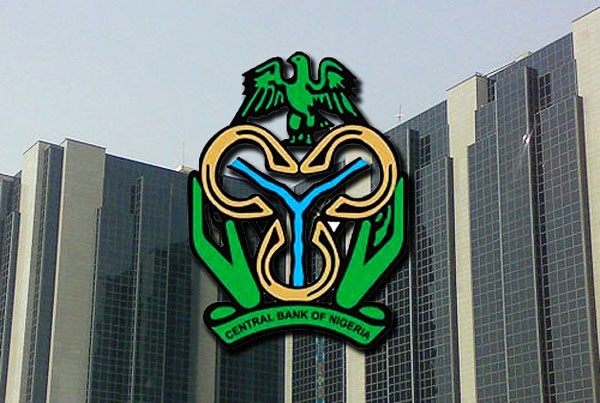Share!
The Central Bank of Nigeria, CBN, has indicated that the decline in crude oil output is the single most damaging factor that imperiled Nigeria’s economy in recent time, which has transmitted shocks across the various sectors of the economy while shackling public finance.
Speaking over the weekend at the just concluded Annual Bankers’ Dinner of the Chartered Institute of Bankers of Nigeria, CIBN, the CBN Governor, Olayemi Cardoso, also outlined a chain of impact this output failure caused to both fiscal and monetary policies.
He, however, indicated that his assignment and that of his fiscal policy colleagues was to tame the impact of this situation onthe economy and the people.
He stated: ‘‘In recent years, the continuous decline in Nigeria’s crude oil production has further weakened our already inadequate economic diversification.
‘ ‘ T his has led to a decline in indicators, which has constrained our policy options. ‘‘Consequently, we have seen the fiscal deficit and public debt increase, placing additional strain on external reserves and contributing to exchange rate instability.
‘‘Addressing these challenges requires a well-crafted structural policy, complemented by coordinated monetary and fiscal policies.’’ Explaining the policy measures taken so far to address these adversities, Cardoso explained that turn-around to positive results is expected in the medium term.
He stated: “The removal of p e t r o l subsidy and the adoption of a floating exchange rate, among other government policies, are anticipated to have positive effects on the economy in the medium term.
‘‘These measures are expected to enhance investor confidence, attract capital inflows, stimulate domestic investment, andultimately improve the level of external reserves.
‘‘Additionally, they are expected to contribute to the stabilization of the domestic currency.’’
Giving a wider perspective to measures being taken to address the economic challenges facing Nigeria by the current Federal Government, Cardoso disclosed that during the 370th session of the Bankers’ Committee he had highlighted the economic agenda of President Bola Ahmed Tinubu’s administration.
Nigeria’s GDP increases by 2.54% in Q3 2023
According to the agenda the administration has set an ambitious goal of achieving a Gross Domestic Product (GDP) of $1.0 trillion over the next seven years, with clearly defined priority areas and strategies. Against this backdrop, among stakeholders.’’
Justifying this policy thrust Cardoso pointed out that the global trend supports the new direction of the apex bank.
He stated: ‘‘In response to the inflationary pressures caused by the surge in energy prices resulting from the Russia-Ukraine conflict, monetary authorities worldwide have raised policy interest rates, leading to tighter global financial market conditions and significant outflows of funds from emerging market countries.
These developments have led to a strengthening of the US dollar, exacerbating inflationary pressures while weakening currencies and depleting external reserves in many emerging market countries.
‘‘As a result, several central banks in emerging markets and developing economies have implemented restrictive policies to contain rising inflation and reduce capital outflows.
‘‘The widespread tightening of monetary policy, aimed at curbing inflation, has restrained economic activity and suppressed growth.
‘‘Global inflation is forecasted to steadily decline from 8.7 percent in 2022 to 6.9 percent in 2023 and 5.8 percent in 2024, thanks to tighter monetary policy measures and lower international commodity prices.
‘‘However, core inflation is expected to decline more gradually, and inflation is not anticipated to return to target levels until 2025 in most cases.
‘‘It is crucial to note that monetary policy actions and frameworks play a vital role in anchoring inflation expectations during these challenging times.
‘‘Furthermore, inflation rates have continued to moderate in advanced economies like the United States, the United Kingdom, and emerging market economies. This is largely due to the responsiveness of interest rates to adjustments in monetary policy parameters. However, countries such as Turkey, and Argentina have experienced upward inflationary pressures, mainly due to legacy supply shocks, despite several policy rate adjustments’’.
Cardoso also listed Nigeria’s key economic challenges, saying, ‘‘A thorough assessment of the economy reveals significant challenges, including high and rising inflation, inadequate foreign exchange supply, depreciation of the exchange rate, limited external reserves, weakened output, and high unemployment.
‘‘These challenges have led to increased interest rates, discouraging investments in productive activities.
‘‘I recently met with a group of small business owners who expressed their concerns about the impact of inflation on their operations.
‘‘They shared stories of struggling to maintain affordable prices for their customers while facing rising costs for raw materials and supplies. The instability caused by inflation not only affects their profit margins but also hampers their ability to plan for the future.
‘‘These entrepreneurs stressed the need for price stability to create a conducive business environment that allows them to thrive and contribute to the economy.
‘‘In recent discussions with individuals from different walks of life, I encountered a young family trying to make ends meet in the face of rising prices.
‘‘They shared their worries about the erosion of their purchasing power and the challenges of meeting basic needs within a tight budget.
They emphasized the importance of stable prices to protect the well-being of ordinary citizens and ensure a fair distribution of resources. It is crucial that we prioritize price stability to safeguard the livelihoods of our fellow Nigerians.
Vanguard
No related posts.
